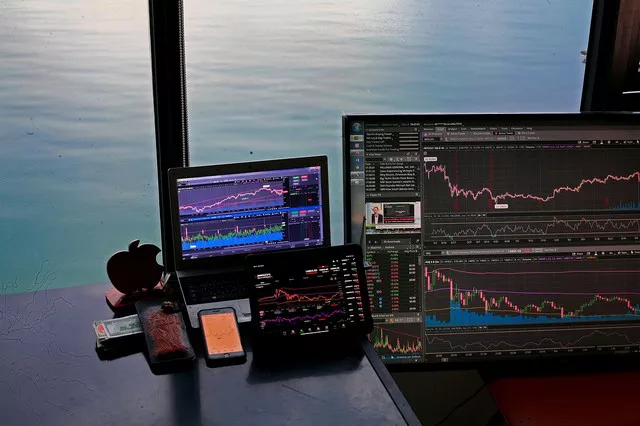Perpetual futures, a financial instrument that has gained significant prominence in the world of cryptocurrency trading, offers traders a unique and innovative way to speculate on the price movements of digital assets. These derivatives contracts, often referred to simply as “perpetuals,” have become a cornerstone of crypto markets.
Understanding Perpetual Futures
At its core, a perpetual future is a type of cryptocurrency derivative that is designed to mimic the price movements of the underlying digital asset, typically Bitcoin or Ethereum, without an expiration date. Unlike traditional futures contracts that have set maturity dates, perpetual futures do not expire, making them an attractive choice for traders seeking long-term exposure to the cryptocurrency markets.
Perpetual futures are traded on various cryptocurrency exchanges and offer traders the opportunity to speculate on both rising and falling prices of digital assets. These contracts are known for their flexibility, as they enable traders to enter and exit positions at their convenience, without the constraints of a fixed expiry date.
Key Components of Perpetual Futures
To understand how perpetual futures work, let’s break down the key components that govern these contracts:
1. Funding Rates: Perpetual futures incorporate a unique mechanism called funding rates. These rates are used to maintain the contract’s price alignment with the underlying asset’s market price. Funding rates are adjusted periodically, typically every eight hours, to encourage traders to bring the contract’s price in line with the spot market. If the perpetual futures price trades above the index price, traders with long positions pay funding to traders with short positions, and vice versa.
2. Leverage: Perpetual futures offer traders the ability to use leverage, which allows them to control a larger position with a relatively small amount of capital. Leverage magnifies both potential gains and losses, making it a powerful tool that requires careful risk management.
3. Index Price: The perpetual futures contract‘s price is determined by an index price that closely tracks the spot price of the underlying digital asset. This index price is used as a reference point for calculating funding rates and ensuring price convergence.
4. Margin and Liquidation: Traders must maintain a certain amount of margin in their accounts to hold positions in perpetual futures. If their margin balance falls below a specified threshold, their positions may be liquidated to cover potential losses. Liquidation helps prevent excessive risk-taking and ensures the integrity of the contract.
Trading Perpetual Futures
Trading perpetual futures involves several steps, and traders should be well-versed in these processes to navigate the market effectively:
1. Choose a Reliable Exchange: Select a reputable cryptocurrency exchange that offers perpetual futures trading. Ensure that the exchange has a robust security infrastructure and a user-friendly interface.
2. Create an Account: Sign up for an account on the chosen exchange, complete the necessary KYC (Know Your Customer) procedures, and deposit funds into your trading account.
3. Risk Management: Before placing any trades, develop a comprehensive risk management strategy that includes setting stop-loss and take-profit orders. Due to the high leverage offered by perpetual futures, risk management is crucial to protect your capital.
4. Position Sizing: Determine the appropriate position size based on your risk tolerance and available capital. Leverage can amplify both gains and losses, so it’s essential to size your positions accordingly.
5. Trade Execution: Execute buy or sell orders based on your analysis of market conditions. Monitor your positions and adjust them as needed to align with your trading strategy.
6. Managing Funding Rates: Keep an eye on funding rates, as they can affect the cost of holding positions overnight. Understand how funding rates work and their impact on your trading profitability.
Benefits of Perpetual Futures
Perpetual futures offer several advantages that make them an attractive choice for cryptocurrency traders:
1. 24/7 Trading: Unlike traditional financial markets that have set trading hours, perpetual futures allow traders to access the market 24/7, providing flexibility and opportunities for profit around the clock.
2. Hedging: Perpetual futures can be used for hedging purposes, enabling traders to protect their cryptocurrency holdings from adverse price movements. This is especially valuable in volatile crypto markets.
3. Liquidity: Cryptocurrency exchanges offering perpetual futures often have deep liquidity, making it easier for traders to enter and exit positions quickly without causing significant price fluctuations.
4. Diverse Trading Strategies: Traders can employ a wide range of strategies with perpetual futures, including scalping, day trading, swing trading, and long-term investing, depending on their risk tolerance and objectives.
Risks and Considerations
While perpetual futures offer numerous advantages, they also come with inherent risks and considerations that traders should be aware of:
1. Liquidation Risk: High leverage can lead to rapid and substantial losses, and traders may face liquidation if their margin balance falls below a certain threshold. Risk management is crucial to mitigate this risk.
2. Funding Costs: Traders holding positions overnight may incur funding costs, which can eat into their profits. It’s essential to understand how funding rates work and their impact on trading profitability.
3. Market Volatility: Cryptocurrency markets are known for their extreme volatility, and perpetual futures are no exception. Price swings can be rapid and unpredictable, posing both opportunities and risks.
4. Regulatory Environment: The regulatory landscape for cryptocurrency derivatives may vary by jurisdiction. Traders should be aware of the regulatory framework in their region and adhere to compliance requirements.
Conclusion
Perpetual futures have revolutionized the way traders participate in cryptocurrency markets, offering flexibility, liquidity, and unique trading opportunities. Understanding how perpetual futures work, including funding rates, leverage, and risk management, is essential for traders looking to harness the potential of these innovative financial instruments.
As with any financial product, it’s crucial to approach perpetual futures trading with caution and a thorough understanding of the risks involved. By employing sound risk management practices and staying informed about market dynamics, traders can navigate the world of perpetual futures with confidence and potentially reap the rewards of this exciting trading instrument.


